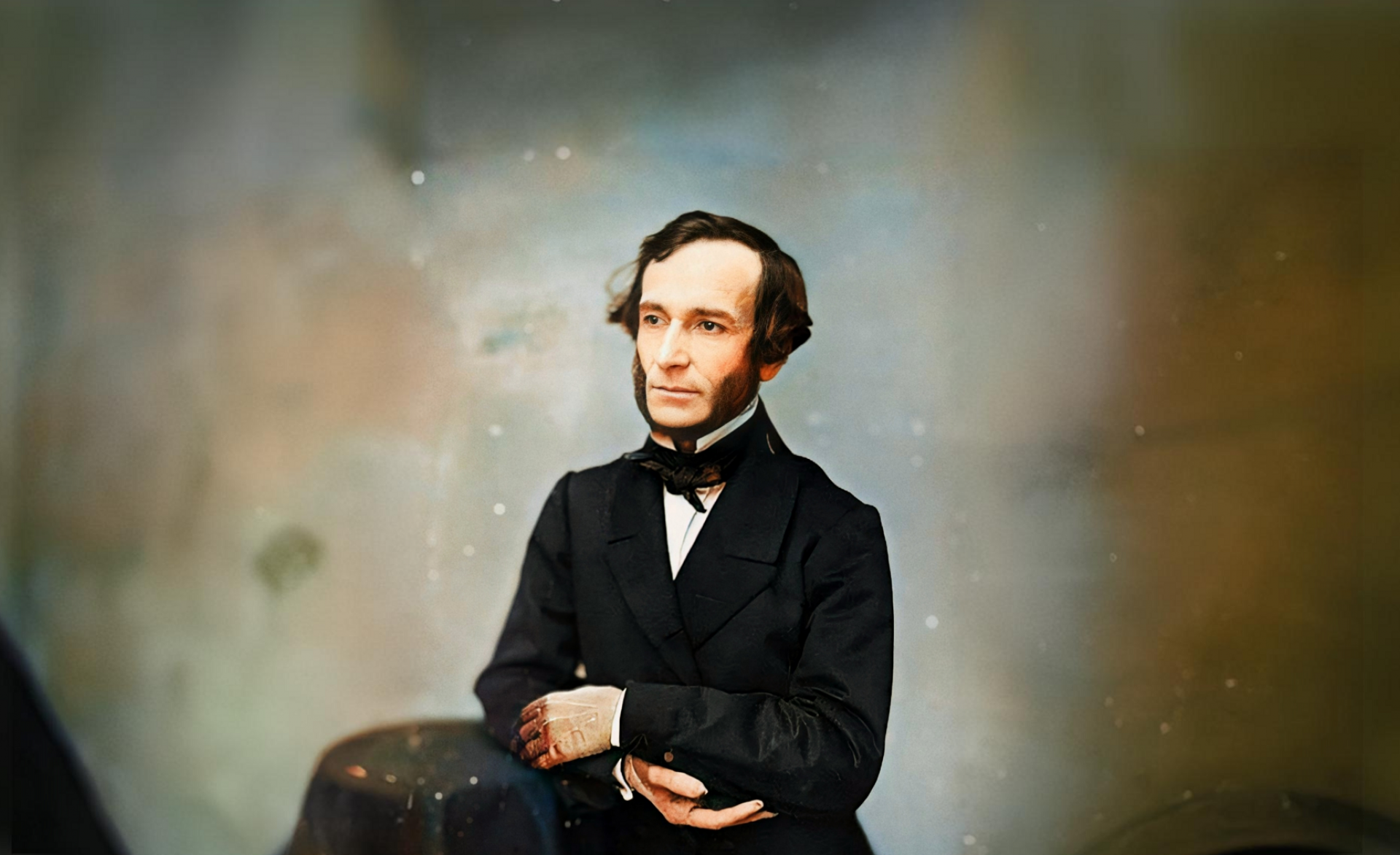Today is a new anniversary of the birth of Juan Bautista Alberdi, a key figure in the intellectual construction of Argentina, who left an indelible legacy through his best known work, Bases and starting points for the political organization of the Argentine Republic, which laid the foundations for the Constitution of 1853.
Alberdi, besides being one of the most influential thinkers of the 19th century, worked as a lawyer, which is why in his honor every August 29th is celebrated in our country the Lawyer's Day.
He was born in 1810 in San Miguel de Tucumán. At the age of 14, he moved to Buenos Aires. During those years, he developed his passion for music and reading, leaning towards authors such as Rousseau, whose ideas would influence his political thinking.
In 1831, he entered the University of Buenos Aires to study law, but his opposition to the regime of Juan Manuel de Rosas forced him to move to Córdoba, where he finally graduated. Alberdi not only devoted himself to law, but also maintained his love for music, writing in 1832 his work “El espíritu de la música” (The spirit of music).
In the early 1830s, Alberdi joined a group of young intellectuals who met at Marcos Sastre's bookstore in Buenos Aires. This group, which included figures such as Juan María Gutiérrez and Esteban Echeverría, founded in 1835 the Salón Literario, a key space for the dissemination of political ideas inspired by European romanticism. These young people would form what would later be known as the Generation of '37, a movement that openly opposed the Rosas regime and promoted freedom and progress.
Rosas' repression drove Alberdi into exile in 1838. During his time in Montevideo, he collaborated in publications such as “El Grito Argentino” and “Muera Rosas”, in addition to writing plays such as “El Gigante Amapolas”, a satire on Rosas.
In 1843, Alberdi moved to Paris, where he had the opportunity to meet General José de San Martín. In 1843 he decided to settle in Chile. There, he continued his intellectual and journalistic work, publishing articles in “El Comercio” of Valparaíso.
The news of Rosas' defeat in the battle of Caseros in 1852 inspired Alberdi to write his most important work, Bases and starting points for the political organization of the Argentine Republic. This book, which he sent to the military leader Justo José de Urquiza, was fundamental in the drafting of the National Constitution of 1853National Constitution of 1853, a document that sought to balance power and guarantee the rights of all the country's inhabitants.
After the enactment of the Constitution, Alberdi was appointed representative of the Argentine Confederation in Europe, serving as a diplomat in France, England, the Vatican and Spain. During this time, he achieved important agreements and strengthened the international relations of the young Argentine nation.
In 1879 Alberdi returned to Buenos Aires to assume a candidacy for national deputy. During his brief return, he participated in crucial debates on the Law of Federalization of Buenos Aires.
Alberdi went into permanent exile in France in 1881. He died on July 19, 1884 in Nueilly-Sur-Seine, near Paris. His remains were repatriated and rest today in the Government House of Tucumán.
Juan Bautista Alberdi was one of the great thinkers and patriots of our country. With his visionary mind he shaped the foundations of our nation, he lived and died faithful to his ideals of justice, freedom and peace. His legacy lives on in the texts that forged our Constitution.
Today, his spirit lives on. President Javier Milei has vindicated the figure of Alberdi and has proposed a series of reforms to provide a clear legal framework respectful of liberties in order to guide the development of our nation. Today we remember and commemorate that the struggle for a fair, free and prosperous Argentina is a permanent challenge that summons us to continue building the nation that Juan Bautista Alberdi imagined.

